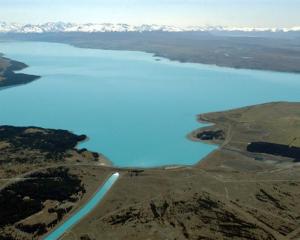Shipping giant Maersk has contingency plans to stop calling at dispute-hit Ports of Auckland, but has denied claims by the Council of Trade Unions that it is about to do so.
Ports of Auckland Ltd (POAL) management last week sacked almost 300 stevedores, all members of the Maritime Union of New Zealand (MUNZ), then announced two companies would replace them using contract workers. The move sparked a public rally, court challenges and heated exchanges at picket lines outside port gates this week.
Council of Trade Unions (CTU) president Helen Kelly said Maersk had advised it could not be carrying containers loaded in Auckland during the industrial dispute.
"It will stop calling at the Ports of Auckland until the dispute is resolved," Ms Kelly said.
While POAL and MUNZ became stalemated in eight-month-old contract negotiations, Maersk and Fonterra's decisions in recent months to move some of their respective cargo handling to Tauranga's port are part of the reason POAL made its workforce redundant, to pave the way for competitive stevedoring.
The legitimacy of that move will be contested in the Employment Court on March 26.
Yesterday, MUNZ filed an injunction in the Employment Court to try to stop POAL going ahead with the redundancies until the court rules on whether or not the dismissals were legal.
Maersk, which is Port Otago's largest shipping container customer, said yesterday it had no firm plans to stop calling at Auckland.
Maersk Line New Zealand's managing director, Julian Bevis, said there were "contingency plans for alternative coverage", which were always created in situations where the ability to service customers had potential to be disrupted.
"In establishing such contingency plans, Maersk Line will seek input and solutions from all relevant parties to ensure that no stone has been left unturned in the process," he said in a statement.
He said reports that Maersk would immediately stop calling at Auckland did not reflectthe current situation.
Maersk was "proactively evaluating all viable alternatives". However, such a change as stopping calls immediately would be possible only with a certain notice period, as cargo already on vessels on their way to Auckland would obviously need to be delivered to the customers, he said.
Last week, Port Otago chief executive Geoff Plunket said he did not believe Auckland's disruptions would spread to southern ports.
"The issue is between Ports of Auckland and the Maritime Union in Auckland, where it needs to be addressed and solved. This shouldn't affect operations at other New Zealand ports," he said.












